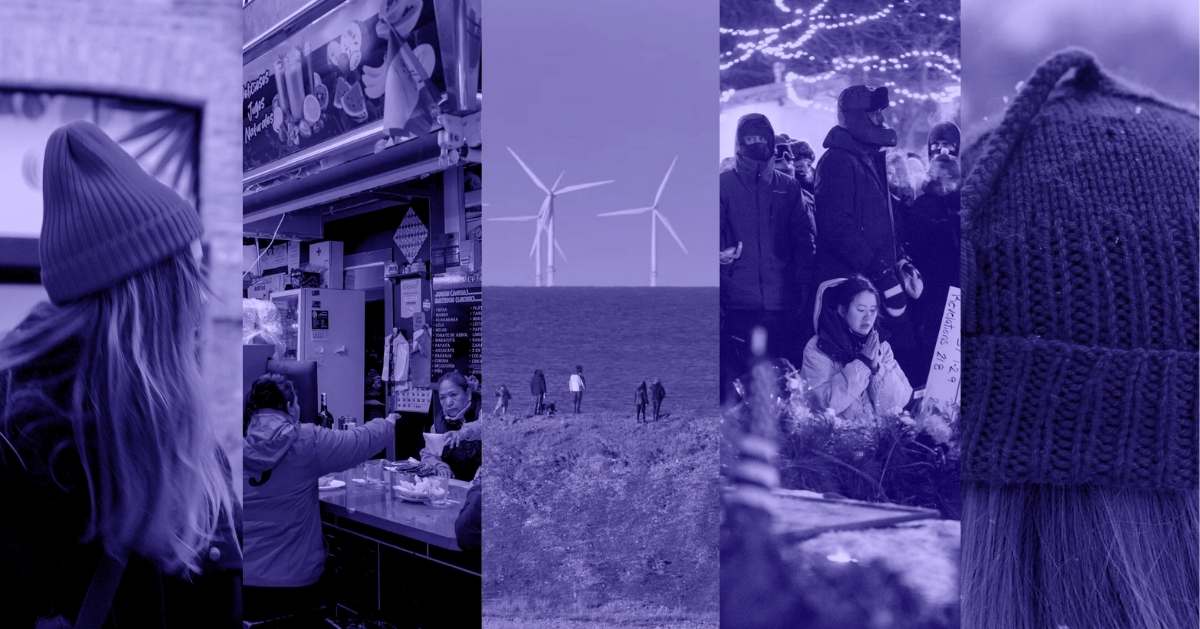Concerned to see refugee children missing out on classes, three Afghan women set up their own school at the Fort McCoy base in Wisconsin
— Three Afghan women set up camp school at Wisconsin base
— 200 refugee children sign up for classes
— Besides math and English, children learn about U.S. life
On an army base in the U.S. Midwest, dozens of Afghan refugee children sit with coloring books and pencils spread across their desks - listening intently as they are taught math, English, and how to prepare for life in the United States.
The hundreds of children living temporarily at the Fort McCoy base in Wisconsin are among 53,000 Afghans who left their country after the Taliban seized power in August and are being housed on military bases across the United States.
Concerned to see young camp residents missing out on classes, three women refugees decided to set up their own make-shift school at the base, naming it "Rise Again".
"After we arrived in the camp, we saw kids roaming around, doing nothing. That's when we thought of a school ... we went from building to building and on the very first day we got 130 kids," said Nilab Ibrahimy, one of the school's three founders.
"We're teaching them so they can adjust to the new environment and don't get bullied in schools outside the camps. It's a different life out there," said the 23-year-old, a graduate of the Asian University for Women (AUW).
Funded by donors including the Bill & Melinda Gates Foundation, the Bangladesh-based AUW grants scholarships to students from vulnerable groups in the region.
When Ibrahimy and her two fellow AUW students, Batool Behnam and Sepehra Azami, started classes at Fort McCoy they were short on notebooks and pens, but local charities and camp officials swiftly responded to their appeal for supplies.
With support from the former principal of an international school in Kabul, who is also at the base, the three women have formed a two-month-long curriculum.
For older students that includes classes on Afghan and U.S. culture and civic education, while younger children are given guidance on what they might face in American schools.
"In order to support kids we give extensive orientation for parents (as well)," Behnam said.
So far, the Rise Again school has about 20 teachers and 200 students aged between seven and 14 at Fort McCoy, which is currently home to nearly 13,000 Afghans and has two other learning centers.

'We Want To Give Back'
The Taliban's rapid conquest of Kabul took place as U.S. forces withdrew from Afghanistan and triggered a mass exodus.
Working with AUW officials and other student leaders, Ibrahimy, Behnam and Azami helped evacuate nearly 150 students and alumni of the university.
They spent two days on a bus amid chaotic scenes and gunfire outside Kabul's airport, eventually boarding a flight without being able to say goodbye to their families.
"We're worried about our families and we miss them ... We are some of the lucky ones who got out and we want to give back to society," said Behnam, 25, who used to work in a charity in Afghanistan.
"It's difficult to help others when you yourself are in a hard situation, but this is what we were taught, we need to be the change-makers."
"It's difficult to help others when you yourself are in a hard situation, but this is what we were taught, we need to be the change-makers," she added.
Azami said she felt it was "unacceptable to do nothing" when she saw refugee children with nothing to do at Fort McCoy.
Related Stories
Best Refugee Organizations to Support in All Fifty States
What's Happening in Afghanistan — And How You Can Actually Help
Six Ways Life Has Changed for Afghan Women Since the Last Taliban Regime
Afghan New Yorkers Spring Into Action as Humanitarian Crisis Grows
From Apps to Air Miles: 7 Ways Tech Can Help Afghans
Angie Salazar of Operation Allies Welcome, which is resettling Afghan evacuees, said three women's initiative was a "testament and precursor to the contributions they will make as leaders as they resettle in the United States."
"The educational outreach by the young women from Kabul to other Afghan guests, even as they prepare for their own settlement demonstrates ... a genuine appreciation for education," said Salazar, a coordinator based at Fort McCoy.

Immediate Needs
It is unclear exactly how many Afghan evacuees will be resettled in the United States, but the Pentagon has said it expects the total to exceed 100,000.
They have been housed first on military bases where they await formal processing before they can be resettled in different parts of the country - a process aid agencies have said they expect to take several weeks at least.
In the meantime, the immediate needs of camp inhabitants are changing, said Mike Watkins, operations director at Team Rubicon, an NGO supplying essentials to all the bases.
While ensuring sufficient food supplies was the main initial concern, sending in warm clothing is likely to be the focus as temperatures start to drop, Watkins said.
There is also increasing demand for educational materials and children's games and toys as more bases consider setting up learning centers.
Ibrahimy and her colleagues hope to launch similar schools or support existing education initiatives in other camps and bases hosting Afghan refugees.
"Our long-term goal is to make sure Afghan children in refugee camps, no matter where they are, are never left out," she said.
Reporting by Naimul Karim in Dhaka; Editing by Helen Popper and Katy Migiro. This article was originally published by the Thomson Reuters Foundation, the charitable arm of Thomson Reuters, that covers the lives of people around the world who struggle to live freely or fairly. It was made available to Good Good Good. Visit news.trust.org.



